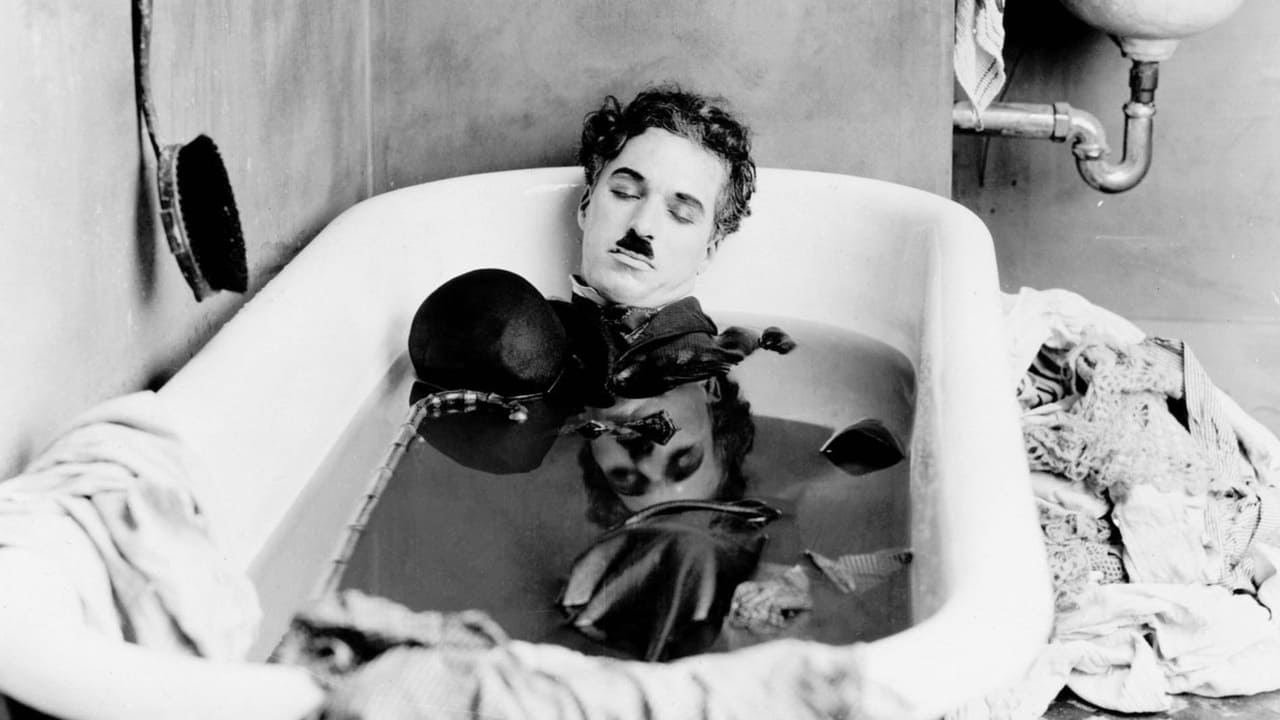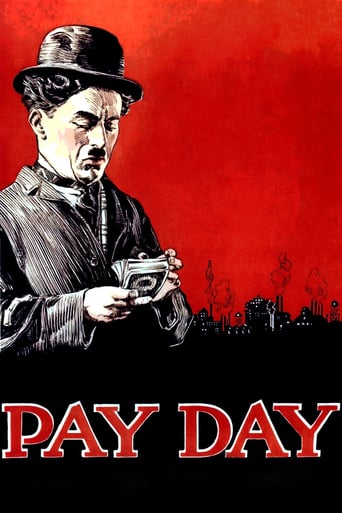



Overrated
Brilliant and touching
A lot more amusing than I thought it would be.
Excellent and certainly provocative... If nothing else, the film is a real conversation starter.
View MoreSo many now-classic (and later oft-duplicated) comedy scenes and scenarios that still hold up so well nearly 90 years later!! Some reviewers have said the plot in this one wasn't so much, but *I* think plot wasn't the focus - I think it was mostly just all-out for laughs and I got plenty of them!My review title, "Just For Fun", sums up how and why Chaplin made this film as he did, in my opinion. He could totally do whatever the heck he wanted as long as he had a film to fulfill his obligation to First National. His movies had already become "HIS" movies in every sense of the word, far from any days when he had to worry about one bad performance costing him basic room & board. Plus by this time, I'm sure he was more than confident that he knew how to please his comedy fans so he just let the gags run full throttle on "enjoy"! Finally, there was one little bit of comedy I hadn't seen anyone else mention thus far. When the boys are all standing outside the speakeasy, at one point Charlie's "standing" (lol) with the help of his cane, unaware that his back is to a ground-level metal grate. But like the elevator, his timing (and luck!) was with him as he managed to twirl the cane several times to have its point land ON the grate! UN-like the elevator, though, his luck runs out and the cane lands in one of the grate holes and takes him down with it! All in all, a grate -- er, I mean, a GREAT work and a fitting end to Chaplin's short film repertoire. ;-)
View MoreBetween his first two feature films, and in his final days with First National studios, Charlie Chaplin kept on producing a handful of short pictures to keep things ticking over with the studio bosses. Reeling off a quickie such as Pay Day was now a simple affair for the professional comic, but the fact that they were no longer his main focus is often evident.Like a few of the First National shorts, Pay Day seems to have been cobbled together from a number of ideas, none of which was substantial enough to be fleshed out into a picture in its own right. So we have the day at the building site, followed by the drunken stagger home, tentatively linked by the idea of it being a payday binge. However both parts yield a fair number of gags, even if the lack of running gags or recurring characters never allows anything to build.Unusually, the only other significant character of this little short is Phyllis Allen playing Charlie's wife. At the age of sixty-one, she is a bit old for Chaplin – about 45 years too old if you consider his choice in real-life wives – but considering he had recently been through his divorce from Wife Number 1 Mildred Harris, the appearance of a frumpy, bossy trouble-and-strife has some explanation. As it is though, her inclusion adds little, and is the kind of cheap characterisation one would expect from the early Keystone pictures. Speaking of which, Pay Day also features ex-Keystone Cop Mack Swain, who in a roundabout way had now ended up as part of the Chaplin stock company. It's good to see Swain, nicely filling in the large burly hole left by the legendary Eric Campbell.As with his previous short The Idle Class, Chaplin seems to be doing a little experimenting with his technique as well, possibly with an eye to using things in his features. There are some very elaborate gags based around split-second timing, something which was already starting to become the domain of Buster Keaton and thus perhaps not advisable for Chaplin to get too much into. Then there is the business with the bricks being thrown up to Charlie, which relies on camera trickery. Again, this is not something which he would have been wise to pursue, as it could soon get gimmicky. Finally there are some close-ups, one of them revealing the obvious falseness of Loyal Underwood's beard, exploring the possibilities of silly faces. These fail simply because they aren't very funny.All in all a bit of a mediocre Chaplin short, providing laughs only because it seems Chaplin could now real off jokes and pratfalls with minimal effort, but lacking in the dedication to make it anything more than a time-filler.
View MoreAltogether amazing little short with the comic at his best as a brick layer who is late on the job and presents a flower to his monstrous boss (MACK SWAIN). Swain looks so much like Billy Gilbert that I thought that's who it was at first. Swain orders him immediately to work and the fun starts.A particularly amusing lunch hour sequence is full of sight gags requiring perfect timing. Charlie gets paid, then has to deal with an overbearing wife who sleeps with a rolling pin in her arms, ready to pounce on him when he doesn't come home from work on time. Instead, he's at the local pub having a night out with the other workers.The pub sequence leads to other amusing sight gags as he and a fellow worker struggle to get out of the rain and onto a streetcar.No wonder Chaplin considers this one his favorite silent short. Again, Edna Purviance has little to do but it hardly matters. It's Chaplin's limelight and that's all audiences wanted.All of the stunts are exhibited in perfect timing and are the mark of genius.
View MoreThis Chaplin short has a lot of variety and some great moments. The first half is especially good, with some very good material featuring Charlie working at a construction site. There is a part with Charlie laying bricks that you will want to see if you are a Chaplin fan - it must have taken a lot of care and planning to film. The film also gets a lot of mileage out of the service elevator that the crew is using. The second part of the movie is not really as good as the first, mostly in that it relies too much on drunkenness for comic effect, but it also has some good gags. The best moments of this part are with Charlie and his imposing wife.
View More